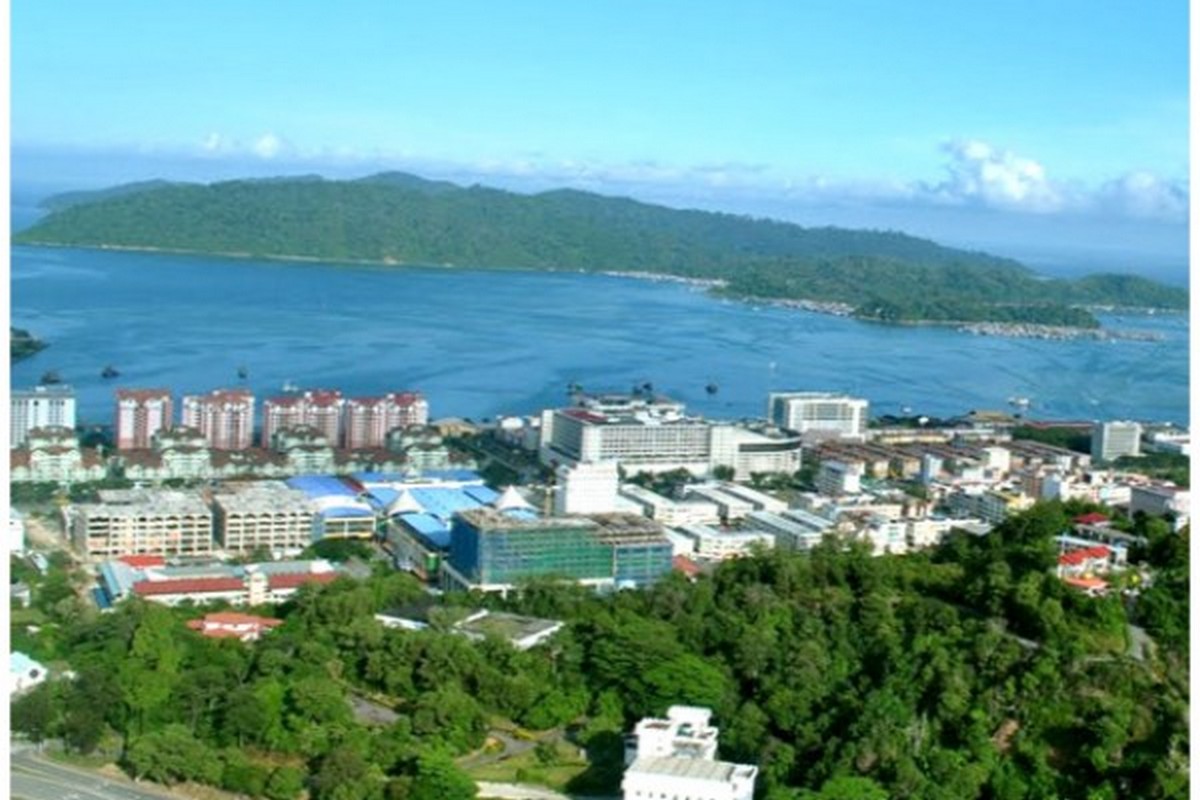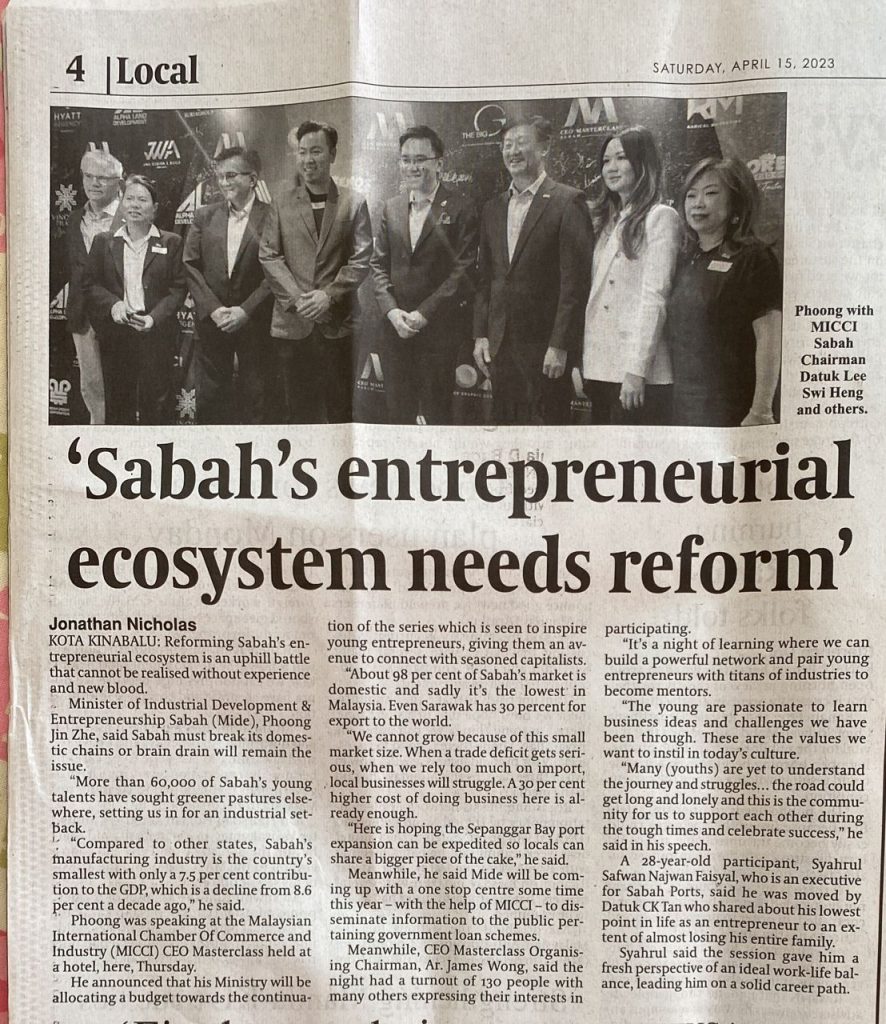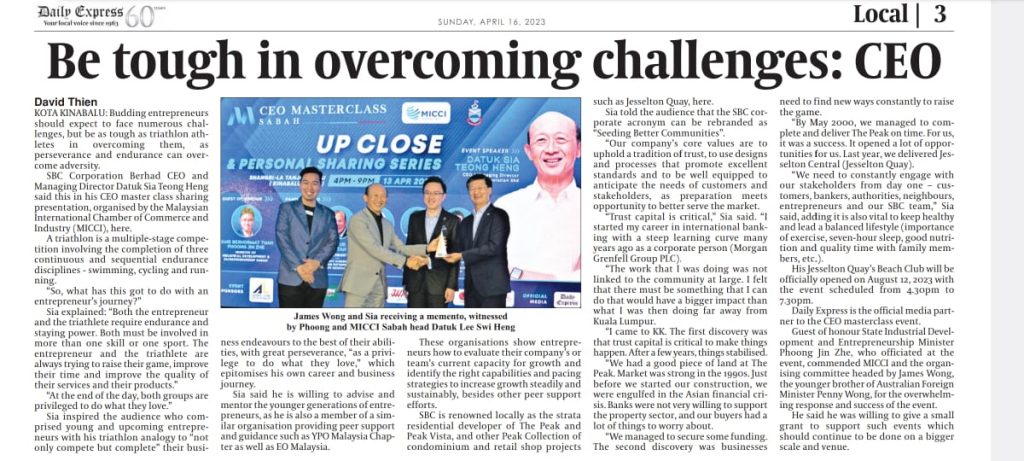To reduce the risk of widening income disparities in the Sabah Blue Economy, the government, should prioritise inclusive and sustainable development strategies that ensure equitable access to opportunities, promote fair benefit distribution and protect the rights and well-being of all stakeholders, particularly marginalised groups and vulnerable communities around the coastal and rivers in Sabah.
ACCORDING to reports, Sabah plans to explore the Blue Economy to achieve sustainable economic growth, provide job opportunities and raise people’s living standards.
The phrase “Blue Economy” emphasises the importance of oceans and coastal regions as drivers of economic development and wealth, as well as the necessity for responsible management to assure their long-term survival.
Sabah’s Blue Economy is centred on four key activities – harvesting living resources through sustainable fisheries and aquaculture management, responsibly extracting non-living resources such as minerals and renewable energy, promoting maritime commerce and trade and addressing ocean health issues such as waste disposal, pollution and climate change impacts.
As a state with significant economic disparities and a high poverty rate, Sabah’s Blue Economy is well suited to promoting economic inclusion by enabling different stakeholders, particularly the coastal and river communities, to participate in sustainable marine-based activities.
The Blue Economy, which aligns with the United Nations’ Sustainable Development Goals, may also promote economic inclusion by eliminating poverty and strengthening communities.
Furthermore, investment in education, training and capacity-building programmes related to the Blue Economy enhances the skills and capabilities of poor communities, which are prevalent around the coastal and river areas of Sabah, enabling their effective participation in marine-based industries.
Nevertheless, the Blue Economy also has the risk of worsening income inequality for Sabah if not carefully addressed.

There are several factors that contribute to this.
For starters, the advantages of Blue Economy activities may disproportionately favour major firms or rich investors, which may be mostly foreigners, resulting in increased wealth concentration and continuing gaps between those controlling the means of production and those who rely on wage labour or small-scale enterprises.
Second, the rise of industries such as industrial fishing or tourism may displace traditional livelihoods on which many Sabahan depend, disproportionately harming marginalised groups among the coastal and river communities and exacerbating economic disparities among these areas.
Third, these marginalised groups may face educational, skill-related, financial, or social impediments to obtaining Blue Economy opportunities, exacerbating economic gaps in society.
Finally, insufficient social safeguards such as labour rights, health and safety regulations and social protection mechanisms can expose Blue Economy workers to exploitation, low wages and poor working conditions, further exacerbating income disparities, particularly in industries with lax regulation and enforcement.
To reduce the risk of widening income disparities in the Sabah Blue Economy, the government, should prioritise inclusive and sustainable development strategies that ensure equitable access to opportunities, promote fair benefit distribution and protect the rights and well-being of all stakeholders, particularly marginalised groups and vulnerable communities around the coastal and rivers in Sabah.
This might include introducing social protection measures, assisting small-scale businesses, improving skill development programmes, encouraging community participation in decision-making processes and promoting responsible and sustainable marine resource management.
Source:- Daily Express




